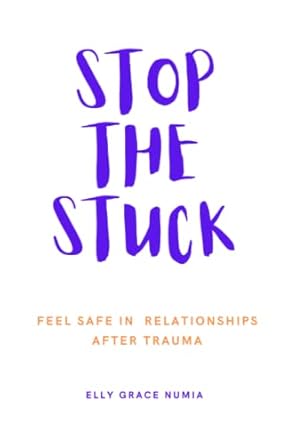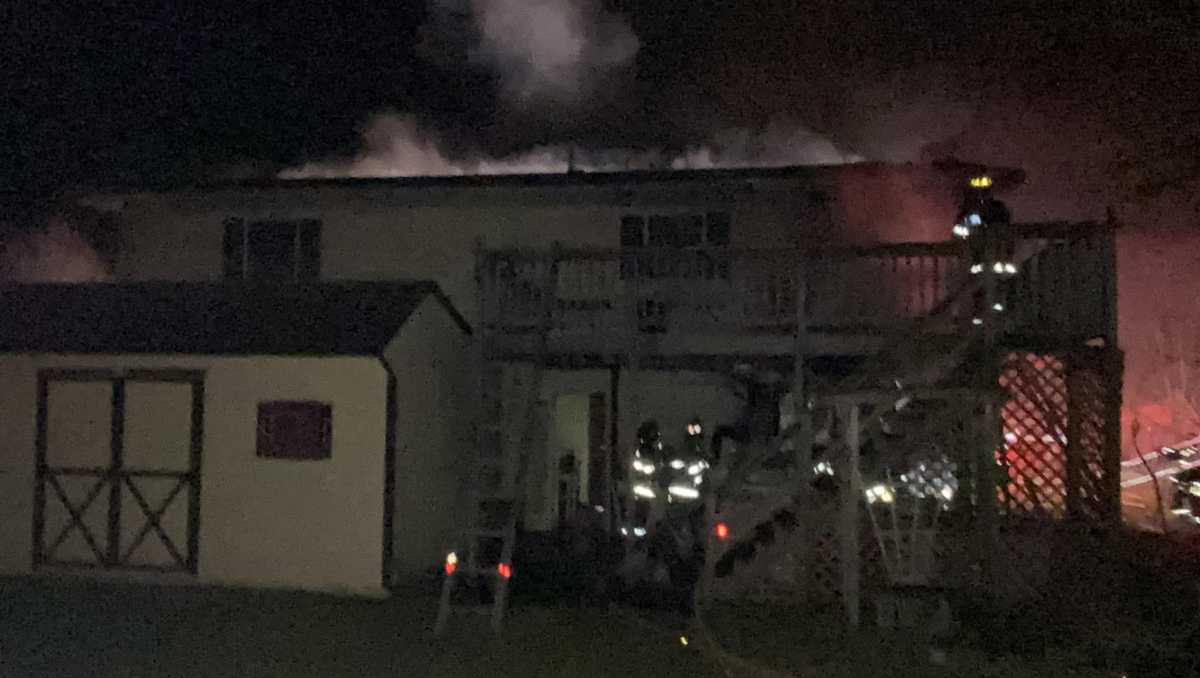Love Monster: Finding Healthy Relationships After Trauma

Table of Contents
Understanding the Impact of Trauma on Relationships
Trauma significantly impacts our ability to form and maintain healthy relationships. The emotional wounds left by traumatic experiences can manifest in various ways, creating obstacles to intimacy and connection.
Emotional Dysregulation and its Effect on Intimacy
Trauma often leads to emotional dysregulation, making it difficult to manage emotions effectively. This instability can severely impact relationships.
- Difficulty trusting others: Past experiences of betrayal or violation can make it challenging to trust new partners, leading to suspicion and insecurity.
- Heightened sensitivity to perceived threats: Trauma survivors might misinterpret benign actions as threatening, triggering anxiety and defensive behaviors.
- Emotional outbursts: Unprocessed trauma can lead to unpredictable emotional outbursts, overwhelming partners and straining the relationship.
- Difficulty expressing needs: Fear of rejection or vulnerability might prevent open communication, leading to resentment and unmet needs.
For example, someone who experienced childhood neglect might find themselves constantly seeking reassurance in a relationship, fearing abandonment. Conversely, someone who experienced abuse might struggle to express their emotions, leading to emotional distance.
Attachment Styles and Trauma
Trauma profoundly influences attachment styles. Our early experiences shape how we relate to others, influencing our expectations and behaviors in romantic relationships.
- Secure Attachment: Individuals with secure attachment feel comfortable with intimacy and independence. Trauma can disrupt this, but secure attachment remains a goal.
- Anxious-Preoccupied Attachment: Characterized by a fear of abandonment and a strong need for reassurance. Trauma often contributes to this style.
- Dismissive-Avoidant Attachment: Marked by emotional distance and a reluctance to engage in intimacy. This can be a coping mechanism for past trauma.
- Fearful-Avoidant Attachment: This style involves a desire for closeness, coupled with a fear of intimacy due to past negative experiences.
Understanding your attachment style, and how trauma may have shaped it, is crucial to building healthier relationship patterns. [Link to reputable source on attachment theory]
Recognizing Trauma Responses in Relationships
Various trauma responses can manifest in relationships, hindering connection and intimacy.
- Avoidance: Avoiding intimacy, emotional closeness, or commitment to protect oneself from potential hurt.
- Hypervigilance: Constantly scanning for signs of danger or betrayal, leading to mistrust and anxiety.
- Emotional Shutdown: Disconnecting emotionally as a coping mechanism to manage overwhelming feelings.
Recognizing these responses is the first step towards addressing them. Open communication with your partner about your experiences and responses is vital, even if it feels challenging.
Healing from Trauma to Foster Healthy Relationships
Healing from trauma is essential for building healthy relationships. This involves addressing the underlying wounds and developing coping mechanisms.
Seeking Professional Support
Therapy plays a crucial role in trauma recovery. Trauma-informed therapy, such as EMDR (Eye Movement Desensitization and Reprocessing) or trauma-focused CBT (Cognitive Behavioral Therapy), can help process traumatic memories and develop healthy coping strategies.
- Benefits of therapy: Processing trauma, developing coping mechanisms, improving emotional regulation, building self-esteem.
- Types of therapists: Trauma specialists, psychologists, psychiatrists.
- Finding a qualified therapist: Use online directories like Psychology Today or your insurance provider's network. [Link to resource for finding therapists]
Self-Care and Self-Compassion Practices
Self-care is not a luxury; it’s a necessity for trauma recovery. Prioritizing self-care strengthens resilience and improves relationship capacity.
- Mindfulness meditation: Helps regulate emotions and increase self-awareness.
- Regular exercise: Releases endorphins, reducing stress and anxiety.
- Journaling: Provides a safe space to process emotions and experiences.
- Self-compassion: Treating yourself with kindness and understanding, especially during challenging times.
- Recognizing self-sabotaging behaviors: Identifying patterns that hinder healing and relationships, and developing strategies to counter them.
Building Self-Esteem and Self-Worth
Building self-esteem is crucial for forming healthy relationships. Trauma can significantly damage self-worth, leading to unhealthy relationship patterns.
- Identifying and challenging negative self-beliefs: Recognizing and reframing negative thoughts about yourself.
- Setting boundaries: Protecting your emotional and physical well-being by setting clear boundaries.
- Affirming personal strengths and achievements: Focusing on your positive qualities and accomplishments.
Building Healthy Relationship Skills After Trauma
Developing healthy relationship skills is crucial for building lasting connections after trauma. This requires conscious effort and practice.
Setting Healthy Boundaries
Setting and maintaining healthy boundaries is essential for protecting your well-being in relationships.
- Examples of healthy boundaries: Saying no, limiting contact with toxic individuals, prioritizing self-care.
- Communicating boundaries effectively: Clearly and assertively expressing your needs and limits.
- Enforcing boundaries: Following through with consequences when boundaries are violated.
Improving Communication and Conflict Resolution
Effective communication is the cornerstone of healthy relationships. After trauma, it's particularly vital to develop effective communication skills.
- Active listening: Paying attention and understanding your partner's perspective.
- Assertive communication: Expressing your needs and feelings directly and respectfully.
- Conflict resolution techniques: Learning healthy strategies for navigating disagreements.
Cultivating Trust and Intimacy
Building trust and intimacy after trauma takes time and patience. It requires vulnerability and a willingness to connect with another person.
- Gradual intimacy: Building trust and closeness gradually at your own pace.
- Vulnerability exercises: Sharing feelings and experiences with a trusted partner.
- Choosing trustworthy partners: Selecting partners who are respectful, supportive, and understanding.
Conclusion
Trauma significantly impacts our ability to form healthy relationships. Understanding the "Love Monster"—those deeply ingrained responses and behaviors shaped by past trauma—is the first step toward healing and building fulfilling connections. By addressing the impact of trauma, engaging in healing practices, and developing healthy relationship skills, you can create loving and supportive relationships. Take the first step towards building healthy and fulfilling relationships after trauma. Start by exploring the resources mentioned, and remember, you are not alone in your journey to conquer your "Love Monster." You deserve love and connection, and with consistent effort and support, you can create the healthy relationships you desire. Remember to seek professional help if needed—it’s a sign of strength, not weakness, to ask for support in overcoming trauma and building healthier relationships.

Featured Posts
-
 Investigation Launched Following Major Chicken Barn Fire In Franklin County
May 22, 2025
Investigation Launched Following Major Chicken Barn Fire In Franklin County
May 22, 2025 -
 Indias Strong Showing At Wtt Star Contender Chennai With 19 Paddlers
May 22, 2025
Indias Strong Showing At Wtt Star Contender Chennai With 19 Paddlers
May 22, 2025 -
 Wednesdays Core Weave Crwv Stock Increase Understanding The Factors
May 22, 2025
Wednesdays Core Weave Crwv Stock Increase Understanding The Factors
May 22, 2025 -
 Core Weave Crwv Stock Surge Reasons Behind The Jump
May 22, 2025
Core Weave Crwv Stock Surge Reasons Behind The Jump
May 22, 2025 -
 Racial Hatred Tweet Ex Tory Councillors Wife Faces Appeal Delay
May 22, 2025
Racial Hatred Tweet Ex Tory Councillors Wife Faces Appeal Delay
May 22, 2025
